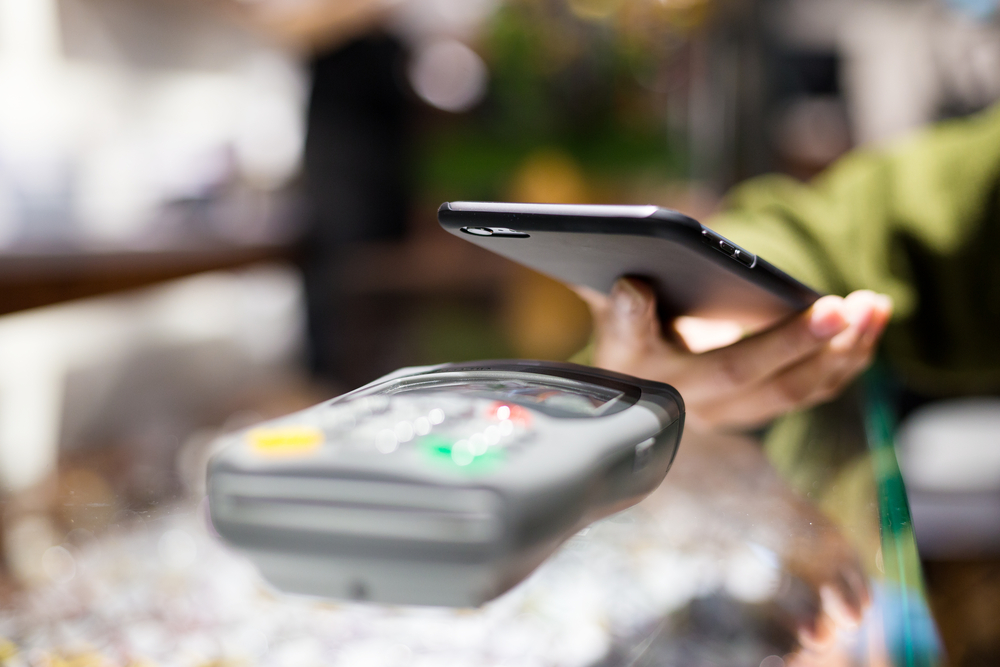Business Tax Preparation Tips
Properly preparing for the busy tax season is critical to running a successful small business. By taking the time to engage in tax preparation and...

The days of ringing up sales with cash registers are becoming a thing of the past. As technology evolves and consumer expectations change, many small businesses are moving to point-of-sale (POS) systems. These systems offer greater efficiency and flexibility while enhancing the shopping experience for customers.
In addition to processing payments, many of today's POS systems have several integrated features. For example, they can track and update inventory in-store and online, monitor employee productivity and sales results, record customer loyalty points, and assist in automating end-of-year tax preparation. If your small business does not currently use a POS system, or if you are thinking about upgrading an outdated one, this blog article from Huddle Business Capital is for you. In it, we explain how to choose a POS system.
A point-of-sale (POS) system, as the name implies, is a system businesses use to process payment transactions. It replaces cash registers, which have long been the method of completing sales transactions. A POS system can take the form of a tablet, mobile phone, computer, or a fixed terminal located at the point of purchase. There are also add-ons for POS systems, such as card readers, barcode scanners, and printers for customer receipts.
The majority of POS systems operate on cloud-based platforms. This means the point-of-sale software is located on a secure server that provides automatic software updates. Not having to update software manually is an added benefit for businesses.
When choosing a POS system for your small business, it's essential to consider several key factors that can impact your operations and customer experience. Don’t hesitate to reach out to POS system providers directly with any questions; this can help you gain insights and ensure you choose the solution that best aligns with your business needs and goals.
The following are seven key factors to consider when evaluating POS systems.
1. Sales channels
The location(s) where you sell your products or services will determine the type of POS system you need. This may include completing transactions in-store, through your website, via mobile devices, and on online marketplaces. Most POS systems can be scaled to accommodate the specific sales channels required.
2. Features and capabilities
Consider the features and capabilities that a POS system offers, such as inventory management, sales reporting, employee scheduling, and customer relationship management (CRM). You may want to consider a POS system with multiple features to help streamline various aspects of your business operations.
3. Ease of use
Consider the user-friendliness of the POS system's interface. An intuitive system can reduce training time for you and your employees, minimizing errors during transactions. Additionally, an easy-to-use POS system can streamline the process of completing sales transactions quickly, resulting in shorter wait times and more satisfied customers.
4. Initial and ongoing costs
When evaluating POS systems, it is vital to consider the costs of acquiring them. There are associated costs for hardware (e.g., POS terminals, card readers, barcode scanners, cash drawers, printers) and software subscriptions. Most POS system providers offer monthly or annual payment options. There may also be installation and setup fees, as well as additional fees for multiple POS terminals and cloud storage fees. Be sure to discuss these with the POS system provider(s) you are considering. One way to invest in a new or updated POS system without depleting your capital is with equipment financing or equipment leasing.
5. Transaction fees
Many POS providers charge a fee for each transaction submitted, particularly for those with integrated payment processing capabilities. Although the processing fee per transaction is nominal, typically ranging from 1.5% to 3.5%, the costs can add up fast. So, ask your POS provider if they offer lower processing fees when your transaction volume increases.
6. Software updates
POS systems, like any technology, require periodic updates to enhance their functionality, performance, and security. That is why it is essential to select a POS system provider that offers timely software updates and maintenance as needed. This ensures your POS system operates smoothly at all times without any issues or disruptions. In addition, it can protect your business's and customers' sensitive information from potential cybersecurity threats.
7. Scalability
If you plan to expand your business, add an additional location, or introduce new sales channels in the future, you want your POS system to adapt easily to these changes. A scalable POS system will allow you to adapt to new operational needs, ensuring you and your team can manage customer transactions as your business grows.
Selecting a POS system should be an integral part of your business strategy and plan. It’s important to remember that a POS system is not just for processing sales transactions. With the right system and features, it can streamline your operations, enhance customer experiences, help you manage inventory effectively, and much more.
This Huddle Business Capital blog article is purely educational and contains general information and opinions; it is not intended to provide advice or recommendations of any kind.

Properly preparing for the busy tax season is critical to running a successful small business. By taking the time to engage in tax preparation and...

Sales are the lifeblood of equipment vendor businesses. With consistent sales that meet or exceed goals, vendors can boost market share, keep up with...

Running a small business requires managing many tasks and responsibilities. As a result, you might be so busy focusing on the day-to-day running of...